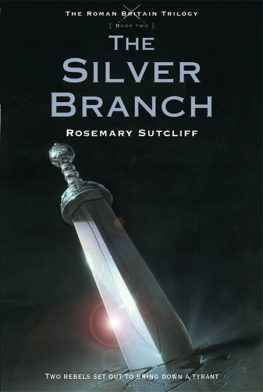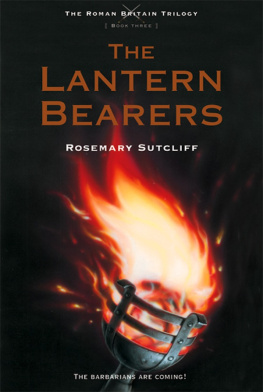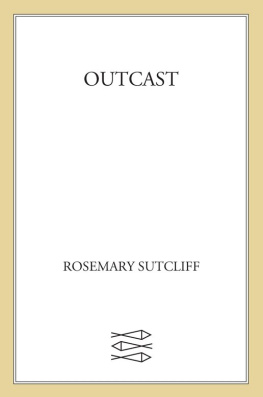Sutcliff - Knights Fee
Here you can read online Sutcliff - Knights Fee full text of the book (entire story) in english for free. Download pdf and epub, get meaning, cover and reviews about this ebook. City: Great Britain, year: 2013, publisher: RHCP Digital, genre: Adventure. Description of the work, (preface) as well as reviews are available. Best literature library LitArk.com created for fans of good reading and offers a wide selection of genres:
Romance novel
Science fiction
Adventure
Detective
Science
History
Home and family
Prose
Art
Politics
Computer
Non-fiction
Religion
Business
Children
Humor
Choose a favorite category and find really read worthwhile books. Enjoy immersion in the world of imagination, feel the emotions of the characters or learn something new for yourself, make an fascinating discovery.
Knights Fee: summary, description and annotation
We offer to read an annotation, description, summary or preface (depends on what the author of the book "Knights Fee" wrote himself). If you haven't found the necessary information about the book — write in the comments, we will try to find it.
Randall is an unloved and unwanted orphan kennel boy at Arundel Castle. And then, one fateful day, he upsets the new Lords mettlesome horse.
Against the violent and turbulent backdrop of Norman England, Sutcliff tells the moving story of a young boy who is wagered and won in a game of chess between a lord and a minstrel . . .
Knights Fee — read online for free the complete book (whole text) full work
Below is the text of the book, divided by pages. System saving the place of the last page read, allows you to conveniently read the book "Knights Fee" online for free, without having to search again every time where you left off. Put a bookmark, and you can go to the page where you finished reading at any time.
Font size:
Interval:
Bookmark:
Contents

Randall is an unloved and unwanted orphan kennel boy at Arundel Castle. And then, one fateful day, he upsets the new Lords mettlesome horse.
Against the violent, greedy and turbulent backdrop of Norman England, Rosemary Sutcliff tells the moving story of a young, badly treated boy who is wagered and won in a game of chess between a lord and a minstrel...
Once again Rosemary Sutcliff brings her unique storytelling gift to an exciting and absorbing story.
Rosemary Sutcliff was born in 1920 in West Clanden, Surrey. With over 40 books to her credit, Rosemary Sutcliff is now universally considered one of the finest writers of historical novels for children. Her first novel, The Queen Elizabeth Story was published in 1950. In 1972 her book Tristan and Iseult was runner-up for the Carnegie Medal. In 1974 she was highly commended for the Hans Christian Andersen Award and in 1978 her book, Song for a Dark Queen was commended for the Other Award. Rosemary lived for a long time in Arundel, Sussex with her dogs and in 1975, she was awarded the OBE for services to Childrens Literature.
HIS NAME WAS Randal, Randal the Bastard, Randal the Thief. His father was a Breton Man-at-Arms, and his mother a Saxon lady, one of several who had waited on the old Countess. She, having nothing to live for, had died when he was born; his father had been killed when he was four years old, in the constant warfare along the Welsh Marches, and neither among his fathers people nor his mothers was there any place for Randal. The only person who had ever shown him any kindness, and that was of a somewhat rough and ready sort, was Lovel the Huntsman, who had taken him over from the time when the woman who sold cheap wine to the men-at-arms had thrown him out like an unwanted nestling because with his father dead there would be no more money for keeping him. Lovel had brought him up, or rather, allowed him to bring himself up in the kennels along with the hound puppies, and treated him as he treated all the rest of his charges, thrashing him mercilessly with the same long oxhide whip when he was wicked, purging him with buckthorn in the spring, and sitting up with him when he had the colic.
He was nine years old now, going on ten, and officially a dog-boy, but in actual fact just something of no account, to be kicked by anyone who felt like kicking, and plenty of people did. Sometimes, when he had been kicked particularly hard, or Lovel had used the whip more savagely than usual, or when he was especially hungry, he would crawl away into a dark corner and indulge in a welter of self-pity, wondering if his mother knew what they were doing to him, until the tears made white stripes down his dirty face to echo the red stripes that the oxhide lash had made on his scrawny brown back. But for the most part he contrived, somehow, to enjoy life.
He was enjoying it now, in this hot, blue August noon, lying on the gatehouse roof to watch for the new Lord of Arundel. He should not, of course, have been on the gatehouse roof, and at any ordinary time, since the only way of reaching it was up the guardroom stair, there would have been no chance of his getting here. But the workmen who had been doing something to the roof had left their ropes and tackle for pulling timber up in position, and where there was a rope, Randal could climb, especially with a projecting buttress to shield him from interruption. They had left some of their timber up here too, ready for use, and between the stacked beams and the parapet was a small secluded strip, well out of sight of the sentinels who paced to and fro on the roof of the great Keep.
Randal lay on his back, lapping up the sunshine until he felt that it was pouring right through him so that if he got up he would have no shadow. Nothing to see but the coping stones of the high, crenellated parapet on one side, the stacked timber on the other, and overhead the burning blue laced with the flight of swallows. He heard the bustle of preparations going on in the bailey far below him, the Master-at-Arms bellowing orders, the high voices of the women, the pad of hurrying feet on the beaten earth, all small and distinct with distance. Somewhere below the gatehouse two men were talking. Their voices carried up to him along the face of the wall.
They should be here soon, one of the men said. It must be full two hours agone that Gilbert Goaty-Beard rode out in state to meet them.
A fine thing twill be to have a Lord of Arundel here in his stronghold again, said a deeper voice with a note of recklessness in it. Three years of Steward Gilbert and our saintly Lady Adeliza is more than enough for any mans belly, while the Old Lion sits in his own abbey of Shrewsbury, making his peace with God.
The first gave a snort of laughter. Tis to be hoped he managed it by the end. It must have taken quite a bit of doing... Aye well, at least we shall have better living than weve had in these past years, with the Lady so busy feeding the Poor and the Church that there was naught but outworn plough-ox beef and watered beer for her own men-at-arms.
Aye, young Montgomery wont make that mistake. There was a deep chuckle.
Silence followed, and then the first man spoke again, reflectively. Young Montgomery... Youd think, seeing whats come of the Conqueror leaving England to a younger son and only Normandy to the eldest, that the Old Lion would have more wisdom than to do the same thing.
Meaning that the two cubs will be at each others throats? Na, na, Ive known those two since they were children. They were devils then and theyre devils now, but they dont turn their devilry against each other. If tis true as they say, that de Bellme rides in with his brother today, then Id say more like theyre planning to turn it against someone else. Twouldnt be the first time. They have no more love for Red William than have most of his Barons, I reckon, and theyre as fire-headed as he is himself.
Careful with that sort of talk, the other man growled in sudden caution, and Randal, listening in his sunbaked corner, heard their feet scuffle, and the lowered grumble of their voices as they moved away.
He reached for one of the three dried figs that he had stolen from the kitchen he always stole anything he got the chance to, because nothing ever came to him otherwise flicked away a couple of flies, and bit into it. It was soft and very sweet, sticky with the heat, and added to his sense of holiday. He sat up, then scrambled to his feet and peered out through the nearest crenelle.
It was like being a kestrel, up here; a kestrel hanging in the sky, looking down on the thatched roofs of the little town beneath their faint haze of woodsmoke, on the Hault Rey looping out through the downs, brown and swift under its alders, winding away through the tawny marshes to the sea; and nothing as high as you were yourself until the oakwoods on the far side of the river valley started climbing the downs again. A little breath of wind came siffling over the shoulder of the woods, and blew a long wisp of hair that would have been barley pale if it was not grey with dirt, into the boys eyes, and he thought that it brought with it the faint sound of a horn.
He thrust the hair out of his eyes with the back of his dusty olive brown hand in which he held the rest of the fig, and pulled himself up with a foot in the crenelle, staring out along the track that followed the flank of the downs. Far off where it ran out from the deep-layered shade of the oak woods, a faint cloud of dust was rising.
Next pageFont size:
Interval:
Bookmark:
Similar books «Knights Fee»
Look at similar books to Knights Fee. We have selected literature similar in name and meaning in the hope of providing readers with more options to find new, interesting, not yet read works.
Discussion, reviews of the book Knights Fee and just readers' own opinions. Leave your comments, write what you think about the work, its meaning or the main characters. Specify what exactly you liked and what you didn't like, and why you think so.












